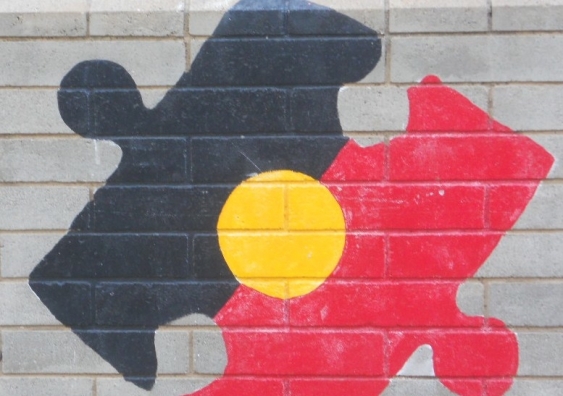Australia needs a treaty and constitutional recognition for Indigenous people
No treaty can fix the problems with Australia's Constitution, which must be amended to remove clauses that permit racial discrimination.
No treaty can fix the problems with Australia's Constitution, which must be amended to remove clauses that permit racial discrimination.

Prime Minister Malcolm Turnbull and Opposition Leader Bill Shorten met last week to discuss recognising Aboriginal people in the Constitution. Both have said that they want a referendum to be held in 2017. However, as Australia edges closer to that date, momentum is building instead for a different reform. A growing number of Indigenous leaders are joining the call for a treaty, or final settlement of claims, encompassing political representation, land and reparations.
This counter-reaction has grown over the course of a decade despite prime ministers advocating strongly in favour of constitutional recognition. Tony Abbott went so far as to say that he would "sweat blood" to secure the reform.
The problem is that positive words and good intentions have not been backed by deeds. Successive prime ministers have failed to take practical steps to progress the debate, or have even set it back. Most recently, Turnbull's plan for a same-sex plebiscite is heading off any prospect of a referendum on Indigenous recognition being held in the near future.
Our leaders have not even taken the step of backing a model for reform. They have ignored or rejected every proposal put before them. It is telling that the most complete and thorough report, delivered in 2012 by a widely representative expert panel, has yet to elicit a formal response from any federal government.
This failure to lead has been compounded by a failure to listen. It should go without saying that the starting point should be to ask Aboriginal people how they would like to be recognised in the Constitution. To impose an outcome, or take their views for granted, would be to continue the patronising and disempowering stance so often adopted by governments in Indigenous affairs.
Unfortunately, the debate has proceeded without Aboriginal people being given the opportunity to express a collective view. In fact, federal policies have frustrated this. Most importantly, the Abbott government defunded Australia's only peak Aboriginal organisation, the National Congress of Australia's First Peoples.
As a result, Aboriginal leaders have played a prominent, individual role, without the authority to speak on behalf of their community. This is finally changing. The Prime Minister's Referendum Council has initiated a series of small community-based conventions of Aboriginal people. These are underway, with up to 20 being held in the lead up to a national Indigenous summit at Uluru.
These conversations are having a powerful impact. They are shifting the debate and the views of Aboriginal leaders to respond more directly to the experience of these communities. Over the course of generations, Indigenous people have been denied the vote, had their children removed, been prevented from marrying, told where they could live and had their wages confiscated.
Having endured such discrimination, Aboriginal people are calling for a broader resolution to their grievances, including by way of a treaty. The case for this is powerful and has been made repeatedly over recent decades. Not surprisingly, it has resurfaced now in response to a long-running, but inconclusive debate about constitutional recognition that has often been framed by political leaders in narrow, symbolic terms.
Some people have responded by rejecting the idea of a treaty out of hand. They see it as beyond the realm of the possible, and alien to our legal traditions. Neither view is correct. All comparable countries have treaties in place with their Indigenous peoples, including Canada, New Zealand and the United States. Some of these agreements have been negotiated in recent years.
In any event, Australia is already moving down the treaty path. The Victorian government has recently initiated treaty negotiations with its Aboriginal communities. Western Australia has gone further in negotiating Australia's first contemporary treaty. There, the Liberal Barnett government has entered into a broad ranging agreement with 30,000 Noongar people.
The WA agreement is a final settlement of land claims covering 200,000 square kilometres. It resolves a long list of grievances by providing access to land and water for customary purposes, a perpetual trust into which WA will pay $50 million yearly for 12 years, protection of Noongar Heritage sites, a housing program to transfer and refurbish 121 properties and initiatives for Noongar economic development. The WA Parliament has also passed a special law recognising the Noongar people as the traditional owners of the south west of the State.
Australia is already in the midst of a state treaty debate. This must be reflected at the national level. However, a treaty should not be seen as an alternative to constitutional recognition. No treaty can fix the problems with Australia's Constitution. Whether Australia enters into treaties, the document must be amended to remove clauses that permit racial discrimination. It also needs to speak of the full history of this continent, and not only of British settlement from 1788.
Professor George Williams is Dean of Law at UNSW.
This opinion piece was first published in The Sydney Morning Herald.